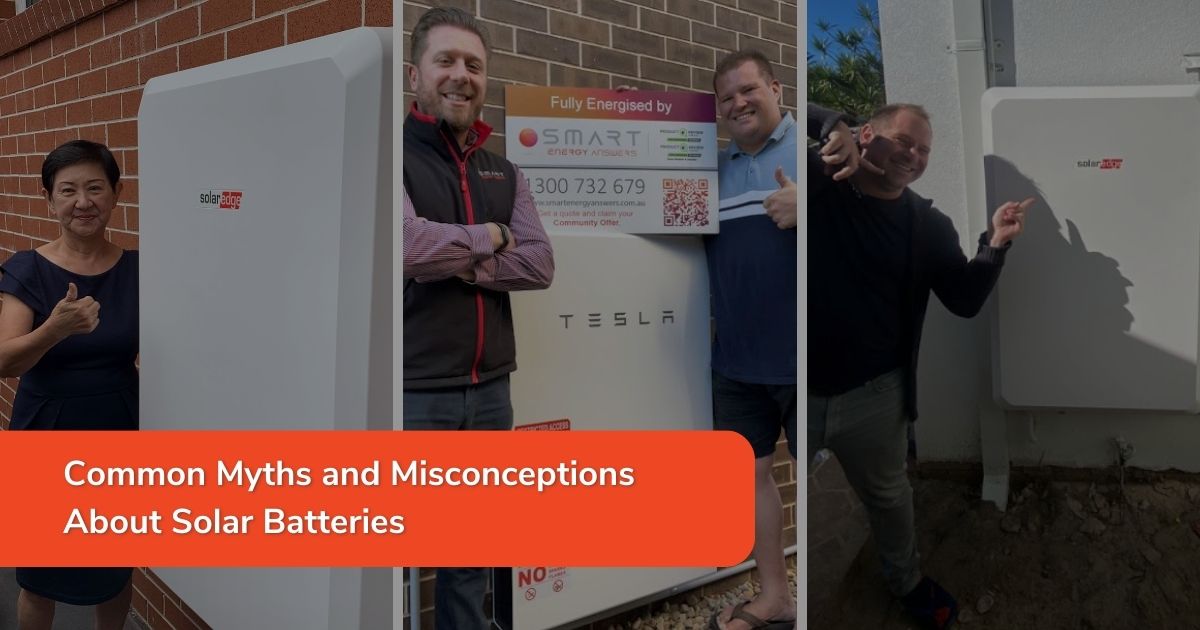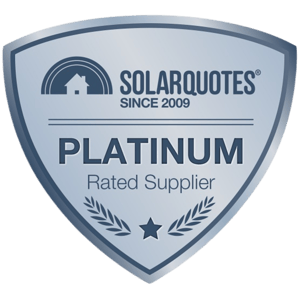Common Myths and Misconceptions About Solar Batteries

Understanding the ins and outs of solar power is pivotal for Australian homeowners looking to harness renewable energy efficiently. Solar batteries represent a key factor in that equation, offering the ability to store the sun's energy and use it when it's most needed. However, misconceptions surrounding solar batteries can tarnish their reputation and dissuade many from making the shift to a greener energy approach. Let's burst some of these myths to shed light on the true capabilities of solar batteries in the land down under.
Myth 1: Solar Batteries Are Too Expensive
One of the enduring myths is that solar batteries represent a significant upfront financial investment. While it's true that there is a cost associated with purchasing and installing these systems, the long-term savings often outweigh the initial expense.
Australian homeowners stand to make considerable financial gains over the lifespan of solar batteries. Not only can they reduce their electricity bills through self-consumption of solar power, but they can also take advantage of feed-in tariffs, which allow them to sell excess solar energy back to the grid. As battery technology advances, the cost of solar batteries is steadily declining, making them a more feasible choice for the average household. Additionally, there are potential government rebates and incentives that can further offset the cost.
Myth 2: Solar Batteries Are Inefficient
The belief that solar batteries are inefficient stems from the early days of battery technology when energy storage capabilities were indeed limited. However, modern solar batteries are anything but inefficient.
Advancements in materials, science, and energy storage have led to batteries that can store more energy and do so with significantly less loss. Lithium-ion batteries, for example, are becoming the standard for their high charge and discharge efficiency, often exceeding 90%. Efficiency ratings continue to rise, ensuring that the energy stored from your solar panels is available to use when you need it most.
Myth 3: Solar Batteries Don't Work During Blackouts
A common misconception is that during a power outage, a residential solar system with a battery won't be able to provide electricity. In actuality, many modern solar battery systems are designed with blackout protection like Tesla Powerwall and SolarEdge Home Battery. These systems automatically switch to battery power when they detect that the grid is down, keeping key appliances and electronics running during an outage.
For areas prone to severe weather or other disruptions, this feature can be a game-changer, providing peace of mind and continuity of essential electrical needs. It's essential for homeowners to verify the blackout capabilities of their selected solar battery system before purchase and installation.
Myth 4: Solar Batteries Are Harmful to the Environment
Opponents of solar batteries often argue that the environmental cost of manufacturing and disposing of these devices outweighs the benefits of stored solar energy. In reality, the environmental impact of solar battery production is decreasing as the industry becomes more efficient and as recycling processes develop.
Moreover, the environmental benefits of solar batteries, particularly when used in combination with solar panels, cannot be ignored. By enabling homeowners to reduce their reliance on fossil fuels and lower their carbon footprint, solar batteries contribute to a more sustainable and eco-friendly energy landscape.
Myth 5: Solar Batteries Require High Maintenance
Switching to solar power can sound intimidating, especially if it's accompanied by the belief that solar batteries are high maintenance. In most cases, however, this couldn't be further from the truth.
Modern solar batteries require minimal maintenance. Unlike traditional lead-acid batteries, which may need regular water checks and other upkeep, most lithium-ion batteries are virtually maintenance-free. They do not require water refills, and their internal systems are monitored and managed automatically. Periodic check-ups by a qualified technician are typically all that's needed to keep a solar battery system in prime working condition.
Conclusion
As we've addressed these common myths and misconceptions about solar batteries in Australia, it's clear that these systems are not only increasingly affordable and efficient, but they also offer significant environmental advantages with little maintenance required. For homeowners looking to save on energy costs and reduce their carbon footprint, embracing the technology behind solar batteries is a smart move.
Making the switch to solar energy is an investment in a sustainable future, and by understanding the realities of solar battery systems, you are better equipped to make an informed decision. Whether you're looking to reduce your electricity bills, provide emergency power, or simply live more sustainably, solar batteries have a lot to offer. If you're ready to explore how solar batteries can benefit your home, contact us at Smart Energy Answers today and take the first step towards a greener, cost-effective energy solution.
%20(1).png?width=265&height=96&name=www.smartenergyanswers.com.auhs-fshubfsSmart%20Energy%20Answers%20Logo%20(HIRES)%20(1).png)

.png?width=514&height=121&name=Tesla%20Powerwall%203%20(new).png)







